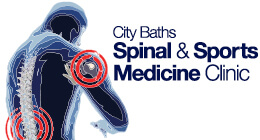Emily McInerney
Is sleep really that important?
Yes! It’s universally agreed that humans require sleep to function. It refreshes our body and mind, restores our energy and keeps our brain functioning by helping us to organise our thoughts, memories, etc.
Adults should aim for 7-9 hours of sleep per night.
A lack of sleep can lead to poor concentration and memory, disturbances in mood, and reduced physical coordination. Long-term sleep deprivation can increase your risk of developing diabetes and obesity.

How does my body know when it’s time for bed?
The “Body clock” concept
Our bodies have a natural “clock” or cycle making us feel sleepy at night and awake during the day. Sunlight adjusts our clock, so it stays aligned with day and night.
What is ‘Sleep hygiene?
Sleep hygiene = good “sleep habits”, or pre-bed habits, that help you to create a sleep routine.
For example: Reading a novel before getting into bed; cleaning your teeth; meditation.
Improving your sleep hygiene can help to improve the “accuracy” or sensitivity of your body clock, making you feel increasingly sleepier the closer it gets to your bedtime.

Top tips for improving your sleep hygiene:

Regularity: Have a regular sleep pattern. i.e., try to go to bed and get up at a consistent time each day.
Get some sun: As mentioned before, our body clock is adjusted through exposure to sunlight. Therefore, it’s important to get exposed to some sunlight to make sure our body clock stays consistent, especially if you spend a lot of time indoors due to work or personal commitments.


Relax: Wind down and relax before bed. Try not to exercise too late in the evening or use electronic screens an hour before bed. If you are prone to spending too much time thinking or “worrying” while you’re trying to fall asleep, you can combat this by allocating time earlier in the evening or during your day to consider events from the day and responsibilities or plans for tomorrow.
If you find stressful or anxious thoughts are constantly impacting your sleep, it’s recommended you consult your GP.
Ignore the time: Don’t watch the clock! This can make you feel more anxious and stressed about how long it’s taking you to get to sleep, which makes it harder to get to sleep!
If you use a clock for an alarm, try turning it around so you can’t see the time.


No Naps: Avoid Naps. Sometimes day naps are necessary. If this is the case, limit your nap to 20 minutes and make sure that you are awake for at least 4 hours before going to sleep.
Reset/Repeat: If you can’t sleep, get up, then try again!
Sleepiness comes in waves, so if you’re having trouble falling asleep, try getting out of bed and going back when you feel your next wave of tiredness.
This will help you avoid becoming anxious or frustrated and help your brain associate your bed with sleep.

4 COMMON SLEEP MISTAKES:
Alcohol before bed – While it might help you to fall asleep, alcohol reduces the quality of your sleep and can lead you to feel unrefreshed when you wake.
Screen time – Electronic screens such as TVs, computers and phones are simulating and can prevent you from relaxing prior to bed, reducing your feeling of sleepiness and making it harder to get to sleep. You should avoid use of your electronic devices for at least one hour before bed.

Too much time in bed – Spending more time in bed can increase your daytime sleepiness as it mixes up the cycle of your body clock. Ensuring that you are exposed to enough sunlight during the day can help improve your sleep-wake cycle. If you are spending a long time sleeping and still feel tired during the day, consult your GP.
Going to bed on an empty stomach or eating too close to bedtime – You should eat at least 2 hours before you go to bed and ensure that you’re not hungry when trying to fall asleep.

I need help improving my sleep, where should I start?
Your GP is the ideal place to start if you need help with your sleep.
They can provide you with general advice, such as lifestyle changes you might be able to make in order to improve your sleep hygiene.
If your GP feels you need more specialised advice, they can refer you to a Sleep Specialist.
Resources/Further information:
https://www.sleephealthfoundation.org.au/sleep-topics/ten-tips-for-a-good-nights-sleep
https://sleephealthfoundation.org.au/sleep-topics/sleep-myths
https://www.sleephealthfoundation.org.au/sleep-topics/sleep-mistakes
https://www.sleephealthfoundation.org.au/sleep-topics/sleep-hygiene-good-sleep-habits
https://www.sleephealthfoundation.org.au/sleep-topics/how-much-sleep-do-you-really-need
https://www.sleephealthfoundation.org.au/sleep-topics/facts-about-sleep
https://www.sleephealthfoundation.org.au/sleep-topics/body-clock


